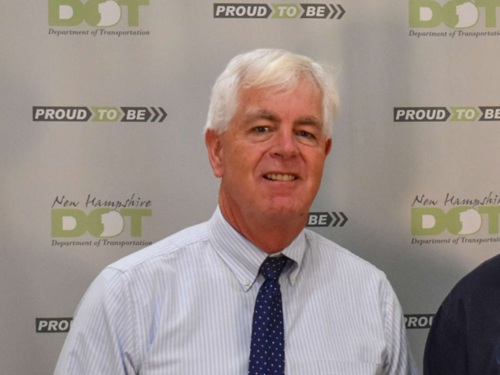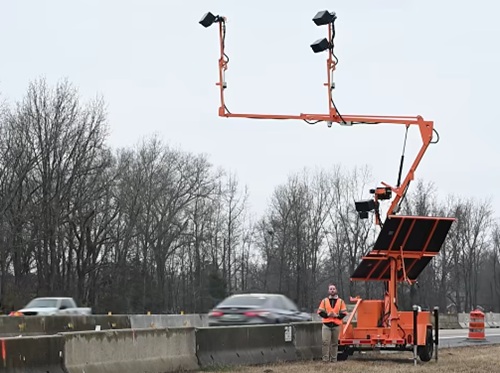The Massachusetts Department of Transportation recently issued the final version of its “Beyond Mobility” plan, which will serve as a blueprint for helping the agency maximize the “equity and resiliency” of the state’s transportation system.
[Above photo by MassDOT]
Also known as a the “Massachusetts 2050 Transportation Plan,” MassDOT said the finalized “Beyond Mobility” document takes a long-term focus on several critical priorities: safety, destination connectivity, travel experience, reliability, supporting clean transportation, and resiliency.
The 60-day public comment period for the plan ran from April 1 through May 31, generating more than 500 individual comments for potential incorporation into the finalized document, the agency noted.

“This plan will go on to restructure several recurring planning processes and shape new planning efforts at MassDOT to ensure that all of our work is reflective of the transportation needs of all our residents, today and for many years into the future,” said MassDOT Secretary and CEO Monica Tibbits-Nutt in a statement.
[Editor’s note: MassDOT’s board of directors also approved on July 17 the agency’s $16.7 billion five-year Capital Investment Plan or CIP guiding its statewide investments for transportation infrastructure, including railroad and transit projects, accessibility upgrades, roadway and bridge improvements, municipal projects, funding for Regional Transit Authorities or RTAs, and support for local aid grant programs.]
“Our roads and bridges are crucial lifelines for our communities. It is essential that we leverage every available tool to ensure safety, reliability, and resilience in our transportation infrastructure,” said MassDOT Highway Administrator Jonathan Gulliver. “Implementing initiatives such as Beyond Mobility is vital to anticipate and address future challenges effectively. The decisions and investments we make now will shape our lives in 2050.”
“Our passenger and freight rail system and regional transit networks are essential in keeping our state’s economy competitive,” said Meredith Slesinger, MassDOT’s rail and transit administrator. “Rail and transit’s role in enhancing our quality of life across Massachusetts will only continue to grow. Beyond Mobility lays out a comprehensive plan for expanding and funding these services where they are most needed, and for continuing to make the zero-emission bus fleet transition so we can support our state’s climate goals.”
“Breakthroughs in Advanced Air Mobility, such as electric crewed and uncrewed aircraft, are empowering aviation to move people and goods in a way that’s greener, cleaner, quieter, and more versatile while collecting aerial data that can help optimize the maintenance and safety of transportation infrastructure,” noted MassDOT Aeronautics Administrator Jeff DeCarlo. “Through the Beyond Mobility Plan, we look forward to leveraging these innovative technologies across all domains to help build a cleaner, more efficient multimodal transportation network.”
“It is obvious that a substantial amount of effort has been expended by MassDOT staff to prepare a document that accurately captures the current conditions, needs and desires of residents,” said Thomas Matuszko, executive director of the Berkshire Regional Planning Commission. “This plan has great potential as a transportation policy document, as it establishes a strategic framework with priorities to improve the Commonwealth’s transportation system over the next 25 years.”

Concurrently with the release of the final “Beyond Mobility” plan, MassDOT has issued a “Request for Proposal” or RFP to procure a transportation planning and engineering consultant team to develop and evaluate options for a new regional ferry service to, from and between communities along the Massachusetts coast
The proposed 18-month study will include an engineering assessment of infrastructure and vessels necessary for the operation of a ferry pilot program across specific communities in Massachusetts, including Gloucester, Salem, Lynn, Winthrop, Quincy, and three neighborhoods of Boston.
The study involves officials of the Massachusetts Bay Transportation Authority – a division of MassDOT – and other entities and will be a comprehensive effort to examine past and existing water transportation services against current and future needs for service.
“Passenger ferry service provides vital connections between coastal cities and towns and provides an alternative to car travel, and we look forward to developing this pilot,” said MassDOT’s Tibbits-Nutt in a separate statement. “Water transportation is a key part of our network and we understand how providing reliable ferry service is an option that many of our daily riders as well as visitors prefer and enjoy.”
 States
States
New Hampshire DOT's Cass Retiring at February's End
January 9, 2026 States
States

